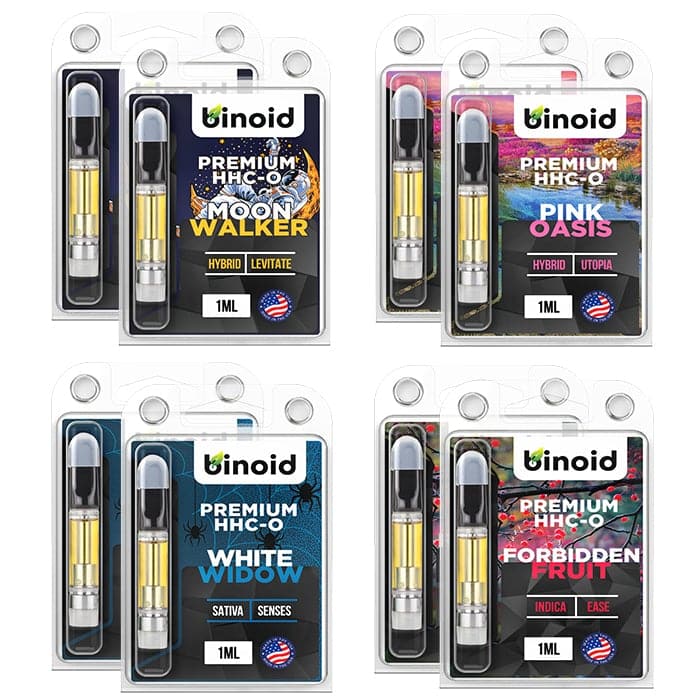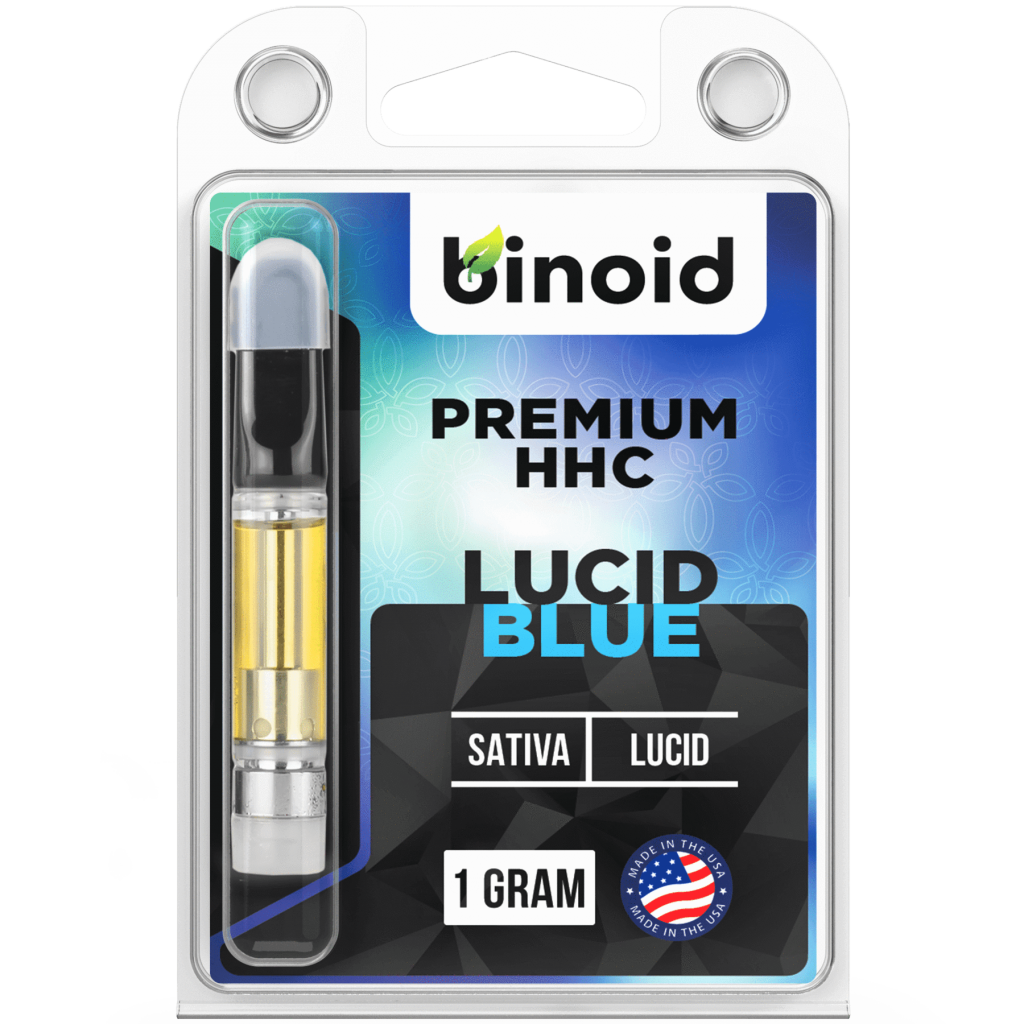The race is on to discover and develop new, more potent cannabinoids. It seems like everywhere you look there are novel compounds, different types of THC, or various cannabis synthetics hitting center stage. For the most part, these compounds have been met with initial interest that eventually wavers, so longevity in these markets is questionable. One that does seem to be standing the test of time (for the last few months anyway) is HHC.
What is HHC?
Despite increasing popularity, information on HHC, scientifically known as 9-Nor-9β-hydroxyhexahydrocannabinol, remains limited. Let’s start with whether it’s natural or synthetic: well, it can be both. There is a biologically active naturally occurring (−)-hexahydrocannabinol, as well as its synthetic enantiomer (+)-hexahydrocannabinol – the latter being what you’ll find in consumer products since natural HHC is only present in very trace amounts.
As the name suggests (Hexahydrocannabinol vs Tetrahydrocannabinol), HHC has many similarities to THC. It’s basically a simplified version of Delta 9 THC. Both HHC and THC have very similar molecular structures and comparable effects. It was discovered during research in the 1960s and 70s in which the goal was to find the most basic cannabinoid-like substances that could still bind to CB receptors.
The few existing studies indicate that HHC has a decent safety profile in animal models and that it could have some medical potential, but we’ll get more into that a bit later. However, claims made by retailers regarding its legality and where it comes from are misleading at best.
Thanks for making your way over. Subscribe to our Cannadelics Weekly Newsletter for regular updates straight to your email, along with great deals on awesome merch including marijuana flowers, vapes, edibles, smoking devices, and cannabinoid compounds. Check through the options, and pick what works best for you!
Legal Status
And because it’s synthetic, it’s also likely not legal. Because a version of the compound is naturally derived, that could fall under the industrial hemp legal loophole. The unnatural enantiomer of HHC is illegal because it is created using a chemical catalyst.
It’s important to remember that retailers might not always have all the information about rare and specialty cannabinoids. Their goal is to sell, so naturally, they will try to paint their new products in the most favorable light. This why you have to do your own research before trying new things, just because a statement is posted on a retailers website does not necessarily mean it’s true.
Cancer Research
As far as HHC research goes, it’s nearly non-existent. However, both natural and synthetic cannabinoids have been found to suppress tumor growth in numerous different animal studies. One study in particular examined the angiogenic effects of several hexahydrocannabinol analogs to see how they can be used in cancer therapies.
New: HHC-O Vape Cartridges

Get 25% Discount Using The Delta25 coupon code
This is a great deal if you’re looking to stock up on HHC-O vapes, or if you and your friends want to split the cost and all try out an interesting new compound. This bundle from Binoids comes with 8 carts in 4 different flavors, each containing 1 gram of HHC-O Acetate. A 4-pack bundle also available.
Flavors in this package:
- Moon Walker (hybrid)
- Pink Oasis (hybrid)
- White Widow (sativa)
- Forbidden Fruit (indica)
Using our coupon code, DELTA25, you can get this bundle for only $180, that’s $22.5o/cart! Check it out before the sale ends!
Click HERE to buy HHC-O vape carts
As per the study: “Two analogs LYR-7 [(9S)-3,6,6,9-tetramethyl-6a,7,8,9,10,10a-hexahydro-6H-benzo[c]chromen-1-ol] and LYR-8 [(1-((9S)-1-hydroxy-6,6,9-trimethyl-6a,7,8,9,10,10a-hexahydro-6H-benzo[c]chromen-2-yl)ethanone)] were selected based on their anti-angiogenic activity and lack of binding affinity for cannabinoid receptors. Both LYR-7 and LYR-8 inhibited VEGF-induced proliferation, migration, and capillary-like tube formation of HUVECs in a concentration-dependent manner.”
“The inhibitory effect of the compounds on cell proliferation was more selective in endothelial cells than in breast cancer cells (MCF-7 and tamoxifen-resistant MCF-7). We also noted effective inhibition of VEGF-induced new blood vessel formation by the compounds in the in vivo chick chorioallantoic membrane (CAM) assay. Furthermore, both LYR analogs potently inhibited VEGF production and NF-κB transcriptional activity in cancer cells.”
“Additionally, LYR-7 or LYR-8 strongly inhibited breast cancer cell-induced angiogenesis and tumor growth. Together, these results suggest that novel synthetic hexahydrocannabinol analogs, LYR-7 and LYR-8, inhibit tumor growth by targeting VEGF-mediated angiogenesis signaling in endothelial cells and suppressing VEGF production and cancer cell growth.”
Simply put, these compounds block the growth of the blood vessels that feed tumors, rather than blocking growth of the tumor itself. So, it basically works as an angiogenesis inhibitor that starves any tumors.
Final Thoughts – HHC
Again, since research on HHC is so limited on this cannabinoid, there really is very little for me to share with you all. However, since it is quite popular online already, you will have to do your due diligence and make sure that the product you’re getting is safe and the company you’re buying it from is legit.
Hello and welcome readers! We appreciate you making it over to Cannadelics.com; where we work hard everyday to bring you fully-rounded coverage of the growing cannabis and psychedelics spectrum. Hang out with us regularly to keep up with everything going on, and sign up for the Cannadelics Weekly Newsletter, so you’re never late on getting a story.

(From the Delta 8 Weekly newsletter)
Affiliate disclaimer: We work hard to find and verify the best products, so we may include affiliate links to support the maintenance and development of this site.
Hello and welcome readers! We appreciate you making it over to Cannadelics.com; where we work hard everyday to bring you fully-rounded coverage of the growing cannabis and psychedelics spectrum. Hang out with us regularly to keep up with everything going on, and sign up for the Cannadelics Weekly Newsletter, so you’re never late on getting a story.









HHC being produced today from hydrogenation of THC isomers is hexahydrocannabinol which is THC plus H2, NOT 9-Nor-9β-hydroxyhexahydrocannabinol which is a hydroxylated metabolite of THC and is THC plus H2O, not H2.